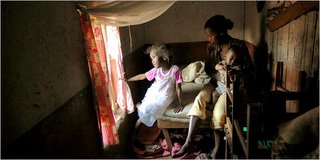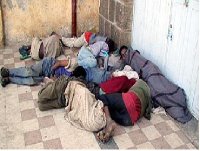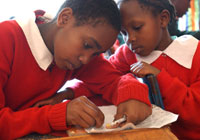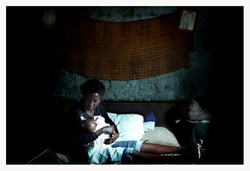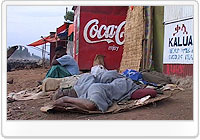 By Dan Rivers (CNN)
By Dan Rivers (CNN)PHNOM PENH, Cambodia (CNN) -- At an age when most children might be preparing for their first day of school, Srey, 6, already has undergone trauma that is almost unspeakable. She was sold to a brothel by her parents when she was 5. It is not known how much her family got for Srey, but other girls talk of being sold for $100; one was sold for $10.
Before she was rescued, Srey endured months of abuse at the hands of pimps and sex tourists. (Watch where freed girl is found upon reunion with reporter )
Passed from man to man, often drugged to make her compliant, Srey was a commodity at the heart of a massive, multimillion-dollar sex industry in Phnom Penh, Cambodia. "It is huge," said Mu Sochua, a former minister of women's and veteran's affairs who is an anti-sex trade activist.
The precise scale of Cambodia's sex trade is difficult to quantify. International organizations -- such as UNICEF, ECPAT and Save the Children -- say that anywhere from from 50,000 to 100,000 women and children are involved. An estimated 30 percent of the sex workers in Phnom Penh are under the age of 18, according to the United Nations. The actual figure may be much higher, activists say.
Global sex industry
Around the world, more than 1 million children are exploited in the global commercial sex trade each year, according to the U.S. State Department. The State Department believes Cambodia is a key transit and destination point in this trade.
Sochua said that with millions of Cambodians struggling to live on less than 50 cents a day, many women turn to the sex industry. Poverty is also often what drives parents to sell their child or themselves on the streets.
"Always a child is left behind, often a girl, who is preyed on by traffickers," Sochua added.
Click here to read entire article!









